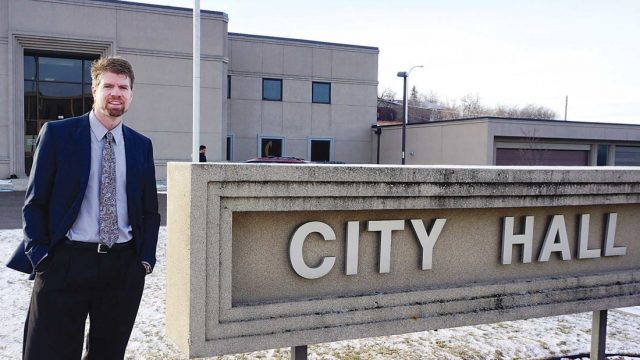City Tells Citizens Who Can’t Vote in City Elections They Have to Pay Double for Building Permits

Extra-territorial zoning is an odd bit of North Dakota law which allows for municipal governments to extend their governance beyond city limits.
Unfortunately for the people who live in those areas, they don’t get a say in city government.
A particularly egregious example of this is the plight of Patti Eisenzimmer, a resident of rural Minot (in the extra-territorial zoning area) who is being forced to pay not just building permit fees to the Minot city government, despite her property not actually existing in Minot, doubt double the fees someone who does live in Minot would pay.
According to the Minot Daily News, Eisenzimmer took her beef to the city council, but the council members aren’t going to do anything about it.
And why would they? It’s not like the people paying double can vote in city elections or anything.
Here’s how Minot City Manager Tom Barry justifies the doubled fees, from the MDN report:
Eisenzimmer released the following Nov. 9 response from City Manager Tom Barry regarding her request for reconsideration of the fees: “The City Council discussed this practice and decided not to change it. Again, the surcharge is meant to recover the added costs of staff time and resources used to perform the duties outside of our corporate city limits and to discourage sprawl which adds to the costs of developing municipal infrastructure in and around rural subdivisions. Currently, nearly half of the costs of our Planning, Building and Inspection Departments are subsidized by property taxes – a cost that those receiving our services outside our city limits don’t pay. Thus, the surcharge also helps to offset the costs of resident taxpayer funding of the Planning, Building and Inspection Departments for services provided beyond our taxing boundaries. Thank you nonetheless for bringing this issue to the Council’s attention and allowing the City to reevaluate it.”
The cost justification doesn’t make much sense.
While there are certainly costs associated with the City of Minot regulating outside of city limits, one would expect the additional fees they collect would make up for it. They’re covering a larger area, sure, but they’re also collecting the fees from that area. If the normal fees wouldn’t be enough to cover the city’s expenses, how are they enough for in-city building projects?
Barry’s other argument, that the City of Minot is trying to discourage development in the extra-territorial zone, makes more sense.
It’s also a gross misuse of government power.
What the City of Minot has done is expand its regulatory powers outside of city limits, and is now using those powers to suppress development in those areas because city leaders don’t want it.
City leaders the people in the extra-territorial zone can’t vote for.
It may well be that discouraging sprawl on the outskirts of Minot is a sound policy choice. But is it fair to implement that policy by inflating the cost of development for people who have no voice in city government?
Last year state lawmakers considered legislation to give some representation to people in extra-territorial zones. SB2086, introduced by state Senator Nicole Poolman of Bismarck, would have allowed for a non-voting member from the extra-territorial area to participate in city government and would have allowed people living in those areas to vote in city elections (the city commission would have assigned which ward or whatever those votes counted in).
The bill failed in the Senate chamber, garnering just 4 votes.
I’m not sure Poolman’s bill was the right solution for this problem – why not just tell the cities that if they want govern an area they have to annex it? – but clearly something needs to be done. Because the status quo is unjust.




